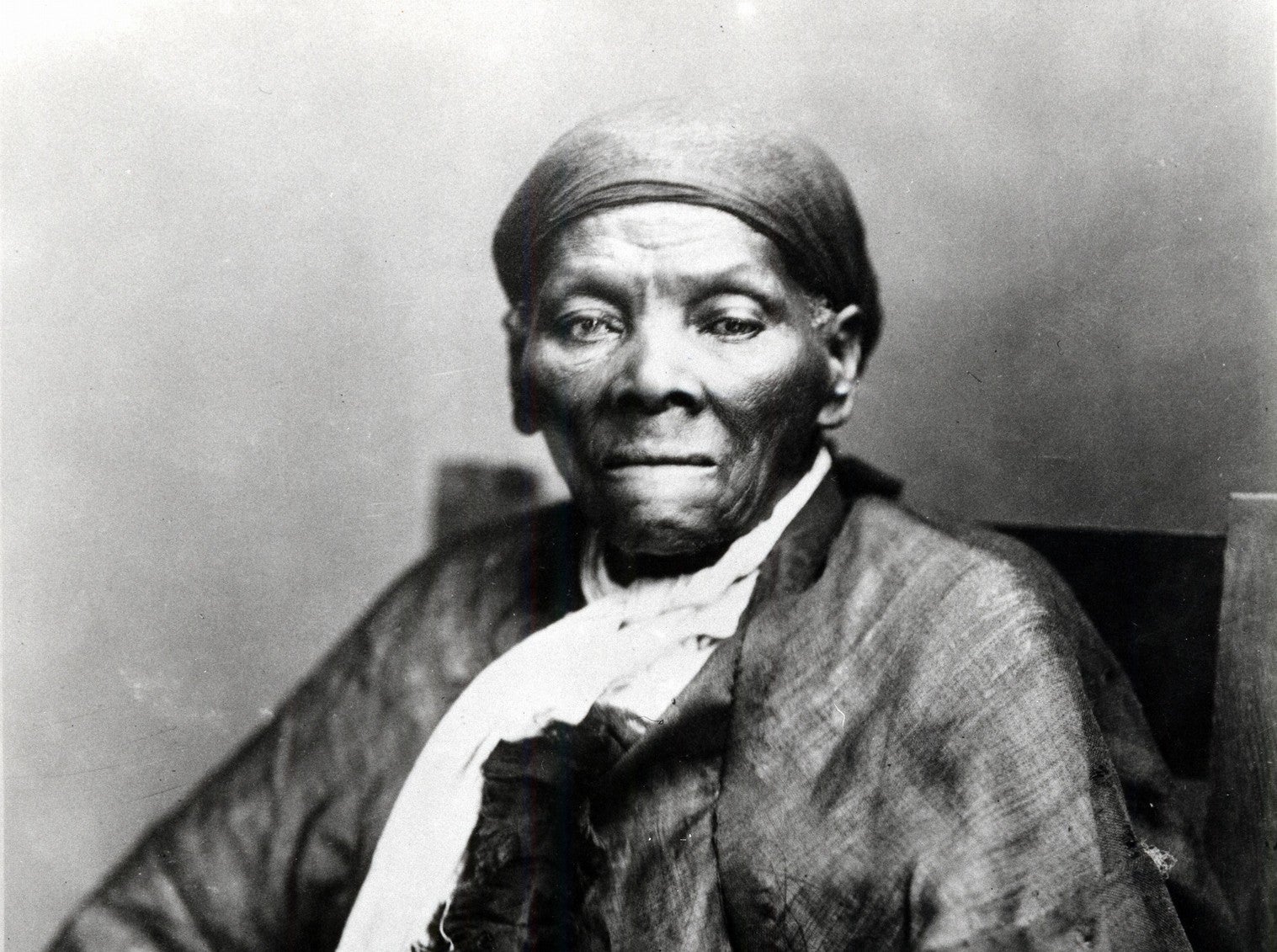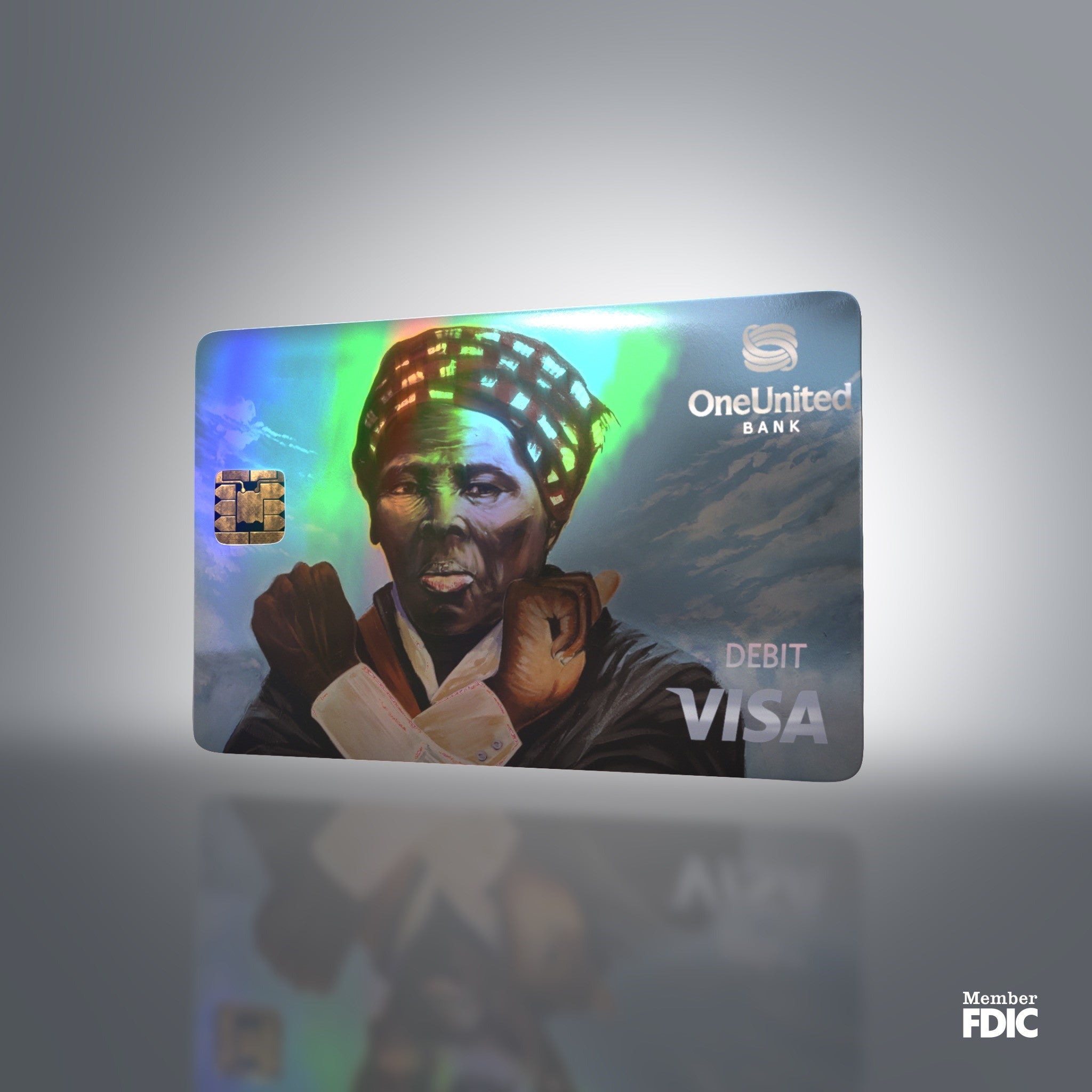
The recent outrage over the OneUnited Bank limited-edition Harriet Tubman Card is an important opportunity for a conversation. Yes, art at its best evokes passionate emotions, which we respect. However, in celebration of Harriet Tubman Day, March 10, we would like to expand the conversation to focus on Harriet Tubman’s economic empowerment legacy.
There’s a trope about how the Black community should relate to capitalism and a capitalistic society. While America has benefited from the free labor of Black folks for years and thwarted our ability to build wealth, there is an expectation that we must remain solely pious or at least anti-capitalist.
The conflation of enslavement and capitalism has been used for centuries to keep African Americans from focusing on economic empowerment. Yes, Tubman was an abolitionist, but her work, like all movements, required money. She also understood the necessity of economic empowerment for security.
In 1858, Harriet Tubman bought her home in Auburn, New York, for $1,200 to provide a safe place for her family. The Harriet Tubman Home still exists today. She also bought 25 acres around her property in 1896 at auction for $1,450. She understood the necessity of economic empowerment for security, while fighting against the dehumanizing version of capitalism practiced in America. The economic empowerment legacy of Harriet Tubman has yet to be told.

OneUnited Bank, the largest black owned bank in America, introduced the limited-edition Harriet Tubman Card as part of a debit card series that has been in circulation for over 4 years that amplifies black economic empowerment. As stated publicly, we wanted the card to pave the way for the Harriet Tubman design on the $20 bill. This bill has been inexplicably delayed. For those who believe symbolism is not important, we ask why should American money only depict white people? If it is not important, why is the creation and circulation of the Tubman $20 at a standstill? Harriet Tubman has had a profound impact on America. She deserves to be on the $20 bill.
Yes, we saw the social media frenzy over the Harriet Tubman Debit Card with arms crossed, in what some tweeters comically call “Wakanda” style. In our recent Facebook Live event, the artist, Addonis Parker, explains his intentions when he painted his vision of Harriet Tubman in the painting “The Conqueror,” as the American Sign Language gesture for love which is also where Director Ryan Coogler culled it from as well. The painting was completed in 2016, well before the release of the Black Panther film. We embrace both the criticism and the praise and respect all points of view. We also hope the spirited attention can shift the conversation from an artistic critique to a deeper analysis of the economic empowerment legacy of Harriet Tubman.
African Americans built this country. We can have statues that pay homage to our leaders’ roles in society, but not benefit equitably from our nation’s wealth. Statues, yes. Money, no. Why is that? Historically, and sadly, what money has helped accomplish is the uneven distribution of wealth into the hands and bank accounts of white America. Data from the Federal Reserve Board’s Survey of Consumer Finances for 2016 indicate that Black families’ median and mean net worth is less than 15 percent that of white families, at $17,600 and $138,200, respectively, a staggering disparity.
American wealth was built on our backs – not just in the South, but in the textile industry in the North and the banking industry overseas, our bodies literally mortgaged to secure white futures but not black ones. According to a study by Darrick Hamilton and Sandy Darity, in order to close the racial wealth gap, America must adopt bold national policies that address the long-standing consequences of slavery, the Jim Crow years that followed, and ongoing racism and discrimination that exists in our society today. Our mission at OneUnited Bank is to help the Black community identify and address the one financial transaction that can close the racial wealth gap for their families that could be buying a home, opening a business or getting life insurance.
Yes, Black joy had the team at OneUnited Bank both laughing and cringing at the funny memes and the recent mention on SNL’s Weekend Update reacting to the Harriet Tubman Debit Card. Yet, if the outpour expands our audience and ignites a larger conversation about Black economic empowerment, then the jibes were totally worth it.
Teri Williams is President and Chief Operating Officer of OneUnited Bank and a BMe Public Voice Fellow.